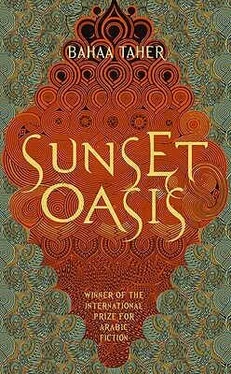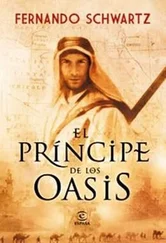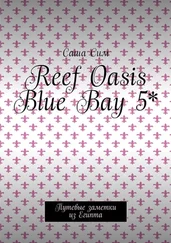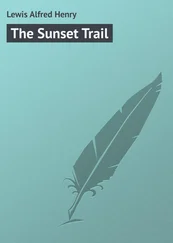Not, however, before succeeding at something at which no man or god had succeeded before me. I was going to fashion a new world without peer. A world in which the races of man would become one and speak one language, which would be Greek, the most sublime of languages, the language of the Iliad, and whose peoples would marry one another, so that there would be only one race throughout the world.
I caught up with the Persians whom I had defeated with my army and tried to foster brotherhood between them and my soldiers. The Macedonians and the Greeks, however, recoiled in disgust at the idea of considering their enemies of yesterday, the barbarians, equals as companions-in-arms. This did not turn me aside from my plan. I married the daughter of Darius, who had been my captive since the beginning of the war, and the night of my marriage to her I married eighty of the commanders of my army to noble Persian women and encouraged my Macedonian troops to do the same, and there were thousands of marriages.
I dreamt of filling the world with a new strain, from the loins of the Europeans and the Asians, after which there could be no ill will among them or wars. Alexander wanted to bring about what the other gods had failed to do — to create a world in which there was neither blond nor brown and in which there was no difference between those who worshipped Zeus and those who worshipped the fire of the Persians or the gods of the Indians.
Alexander asked himself,'Must I, for the sake of this dream, wade through a sea of blood — the blood of the defeated and the blood of my soldiers?'
And another Alexander answered,'Yes, so long as that is for their good in the end. No one understands the wisdom of the gods, so why should it be necessary for them to understand my wisdom?'
The members of my entourage whispered that Alexander had become a tyrant like the tyrants of the East. He wore the robes of the barbarian Persians and sat on the throne of Darius, holding Darius's sceptre. It seemed he had forgotten the freedom of the Greeks, for he allowed none to argue with him and wanted to make the entire world his subjects.
Some of the troops wanted to return to their homelands after their mission in Asia was finished, so I dismissed those soldiers who wanted to go back to Greece and was left with only the faithful among my commanders, at their head Hephaestion, my lifelong friend, and the soldiers of my people the Macedonians, who stood alone, as an army that had never been defeated. It was no longer in their power, now that they had become addicted to the wine of victory, to retreat, even had their souls told them to respond to the call of the mind, or of family or offspring.
Yet despite this, the plots against my life among my remaining troops went on and this stirred up my anger and sorrow, so I turned my attention more to drink. I held banquets and evening parties at which the tuns of wine were emptied without reckoning. No one could keep pace with me in my drinking, and it may be that I drank more than any other because I had greater need than the rest of the wine, in whose forgetfulness the scattered shards of Alexander came together and were made one. Or perhaps, quite the opposite, it scattered those shards, and I could observe my severed parts and give voice to what I could not reveal when sober.
At such times I would not hesitate to kill anyone who wanted to wake me so that I could become the Alexander he wanted me to be.
Which of my sins exceeds that which I committed at one of those banquets against the brave soldier who had once saved my life — Clytus, who threw himself on top of me when I fell wounded from my horse at the start of one of my battles with the Persians and took in his body the arrows that were meant for me? But at that banquet, Alexander was settling scores with Philip, his earthly father.
I used to boast to my soldiers that all the wars and victories of Philip in the lands of the Greeks were as nothing compared with what I had achieved in Asia. Indeed, Philip would have been able to achieve none of his Greek victories had not I been the true leader of his armies in the wars he embarked on. Why should Clytus interfere in this business between me and Philip? He dared to say that, were it not for the victories of my father in the lands of the Greeks, I would have done nothing, and that there Philip had been fighting real men, while I, in Asia, was fighting women. When he said that, I became blind to everything. I didn't see Clytus, to whom I owed my life, in front of me, but an enemy taking Philip's side against Alexander. Then he committed the great sin. He denied that I was the son of the Mighty God! He said sarcastically that this frankness of his with me was more honest than the prophecies of my 'father'. In a fit of madness, I snatched a spear from one of the guards and thrust it into his side, screaming in his face, 'Go, then, and join Philip, if you love him so much!'
The fountain of blood that spouted from his wound before my eyes and drenched me brought back the Alexander whom the wine had splintered into so many people and gods and made him one Alexander again, an Alexander lost and terrified. I continued to stare at the corpse of Clytus for a second as it released its blood, the spear still stuck in it. I thought, 'That is my friend. The companion of my pleasures and in battle the bravest of my men. Were it not for him I would not now be alive. He who now lies murdered, I have struck down with my own hand.' And with a weeping scream I yanked the spear from his body and turned it towards my breast.
Had my drunken hand reached my heart at that instant and delivered the thrust that I desired, I would have spared myself days and years that brought nothing new but further bewilderment. The guards, however, were faster than I and they wrested the spear from my hand and I fell to the ground despite myself. I spent the whole night stretched out next to the corpse, crying for Clytus and crying in terror at the monster that dwelt beneath my divine skin.
Amun had not granted me the right to make human sacrifices. That came from my mother Olympias, who never shrank from killing and didn't know remorse. As for me, though, when the guards came to remove the body from my tent, I gave orders that no one was to come in to me again. I lay in the corpse's place for three days during which I tasted no food and never moved. I stayed with my eyes fixed skywards, imploring Amun and the gods to gather my scattered parts once and for all, though it be as a corpse.
My guards and companions realized that I had surrendered myself to death, so they burst into my tent and started to beg me to rise and live. I obeyed them because I wanted to obey them, for the moment of true yearning for death had not yet come.
Among them that day was Callisthenes, the companion of my studies with Aristotle and the nephew of my teacher the philosopher. He was the historian of my campaigns who immortalized my military glories. He pleaded with me to live, not for myself but so that the glory of Macedonia should not be lost.
He was unaware at the time that he was pleading for the life of his executioner. He begged me to live, so I lived, only to kill him a few months later. They seized him as a suspect in a plot to assassinate me and he defended himself eloquently, as was his custom and as he had learnt to do from his uncle. It was, however, his eloquence which confirmed my suspicions. The truth is simple and doesn't need to be adorned with words. On that basis, I ordered his death along with the others, after torture. Then I repented again after he was dead and locked myself up once more, weeping for him and for myself. In my loneliness it occurred to me that when I killed him I was killing, for ever, whatever remained inside me of Aristotle, and the echo of his lessons on the happiness that comes with wisdom and rationality.
Читать дальше












